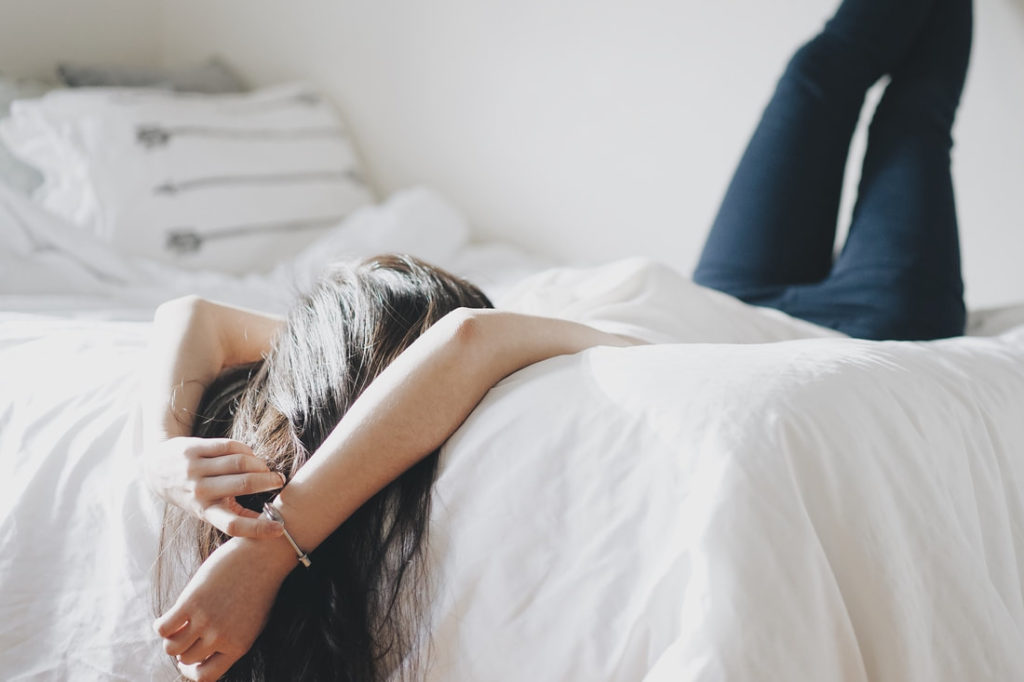
Today there is a guest blog for you to read. It is written by Noah Smith.
Noah Smith conquered his anxiety battles as a child. Today, he conquers places in his travel adventures. He writes for WellnessVoyager and enjoys offering his travel expertise to readers.
How Anxiety Harms Sleep and How You Can Combat Its Effects
The main connection between chronic anxiety and sleep problems is that one begets the other. It’s a vicious cycle. Your anxiety may cause you to develop sleep disorders like insomnia or narcolepsy and your inability to sleep properly may cause you to develop more anxiety. As an adolescent, this effect can be magnified. Since sleep is done in the unconscious realm and anxiety is felt while you’re awake, it may be helpful to try to reduce your anxiety first, before taking measures (like medication) to force the sleep issue.
Find a way to shut down your overworked brain
Easier said than done, right? Anyone with anxiety knows that these anxious feelings tend to get worse as soon as your head hits the pillow. Finding a way to prevent your brain from flying off the deep end during the quiet calm of pre-sleep is paramount to success in overcoming your problems.
“The worries that lead to increased anxiety and tension may come to the forefront when lying down to sleep at night. Once the distractions of the day are pushed away, ruminations about your career, finances, or relationships may come to the surface,” says VeryWell.com.
An anxious brain is one that’s working overtime. You must find a way to turn the volume down on your overactive mind. Mindfulness exercises, like meditation, focused breathing, and yoga performed right before bedtime can help in this endeavor. Some also find that a little bit of noise can be a distraction from anxious thoughts. Try a white noise machine, some soft music, or leave the window open and focus on the sounds of the city or nature.
Keep anxiety-causing triggers out of the bedroom
Your bedroom should be for sleep and sleep only. One sure-fire way to disrupt sleep is to bring your triggers for anxiety into your bedroom with you. Don’t do homework in bed. Don’t lie in bed and look at Facebook for hours. Don’t even watch TV or movies in bed. Instead, do those things outside of the bedroom.
“Don’t work, watch TV, or use your computer in bed or the bedroom. The goal is to associate the bedroom with sleep alone, so that your brain and body get a strong signal that it’s time to nod off when you get in bed,” notes HelpGuide.org.
The more you associate being in bed with sleep, the easier it will be to fall asleep and stay asleep when the time comes. Don’t get into bed unless you are tired and are committed to going to sleep right then.
Get plenty of exercise and avoid chemical triggers
Studies have shown over and over again that exercise helps you sleep better, and the workouts do not have to be intense. For example, a 20-minute workout four to five times a week in your home gym will provide long lasting benefits. One of those ways is by helping to reduce stress and anxiety, as exercise triggers the release of brain chemicals that promote mental wellbeing.
But it’s more than that. Sleep reinforces our circadian rhythms by promoting alertness during the daytime hours, which in turn promotes restfulness during the nighttime hours. If you don’t find yourself falling fast asleep the moment you lie down after exercising don’t get discouraged. Recent research suggests that “exercise may not have an immediate impact on sleep, but in fact may take several weeks or months to significantly change sleep.”
A healthy diet is also important, and you should always avoid substances like alcohol, nicotine, and caffeine before attempting to sleep. Chronic anxiety is one of the most common problems for teens and sleep disorders are the
most common effect of anxiety. What that means is that you’re not alone. Plenty of people have found a way to manage their anxiety to get better sleep, so it’s entirely possible – even if it feels hopeless at times.
Photo Credit: Pixabay.com
